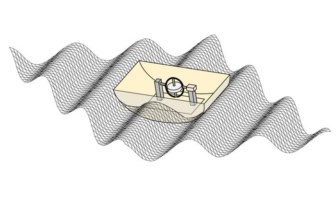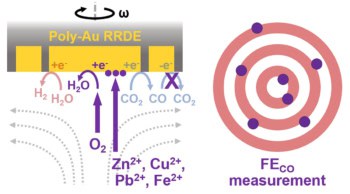Available to watch now, The Electrochemical Society, in partnership with Hiden Analytical, The Royal Society of Chemistry and Cell Press, explores the decarbonization of the physical world
Want to learn more on this subject?

Chemical synthesis is responsible for the significant emission of carbon dioxide worldwide. These emissions arise not only due to the energy requirements of chemical synthesis, but because hydrocarbon feedstocks can be overoxidized or used as hydrogen sources.
Using renewable electricity to drive chemical synthesis may provide a route to overcoming these challenges, enabling synthetic routes that operate at benign conditions and utilize sustainable inputs. We are developing an electrosynthetic toolkit in which distributed feedstocks, including carbon dioxide, dinitrogen, water and renewable electricity can be converted into diverse fuels, chemicals and materials.
In this presentation, we first share recent advances made in our laboratory on nitrogen fixation to synthesize ammonia at ambient conditions. Specifically, our lab has investigated a continuous lithium-mediated approach to ammonia synthesis and understood the reaction network that controls selectivity. We developed non-aqueous gas-diffusion electrodes, which lead to high rates of ammonia synthesis at ambient conditions. Then, we discuss how water can be used as a sustainable oxygen-atom source and how carbon dioxide can be used to achieve carbon chain extension.
These findings are discussed in the context of a broader range of electrosynthetic transformations that could lead to local and on-demand production of critical chemicals and materials.
Want to learn more on this subject?
Karthish Manthiram is a professor of chemistry and chemical engineering at the California Institute of Technology (Caltech). The Manthiram Lab focuses on the molecular engineering of electrocatalysts for the synthesis of organic molecules, including pharmaceuticals, fuels and commodity chemicals, using renewable feedstocks. Prof. Manthiram received his BS in chemical engineering from Stanford University in 2010 and his PhD in chemical engineering from the University of California, Berkeley, in 2015. After a one-year postdoc at Caltech, he joined the Massachusetts Institute of Technology (MIT) as assistant professor in 2017. In 2021, he joined Caltech as full professor of chemistry and chemical engineering. His research has been recognized with awards including the DOE Early Career Award; NSF CAREER Award; Sloan Research Fellowship; 3M Non-Tenured Faculty Award; American Institute of Chemical Engineers 35 Under 35; American Chemical Society PRF New Investigator Award; ECS San Francisco Section Daniel Cubicciotti Student Award; and Forbes 30 Under 30 in Science. Prof. Manthiram’s teaching has been recognized with the Camille Dreyfus Teacher-Scholar Award; C Michael Mohr Outstanding Undergraduate Teaching Award; MIT Chemical Engineering Outstanding Graduate Teaching Award; and MIT Teaching with Digital Technology Award. He serves on the Early Career Advisory Board for ACS Catalysis and on the Advisory Board for Trends in Chemistry.








